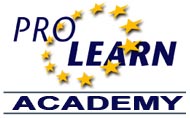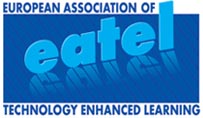Communicative modeling as way to facilitate professional collaboration
Modeling facilitator:
Ambjörn Naeve (http://kmr.nada.kth.se/wiki/Amb/HomePage)
Head of the KMR group (http://kmr.nada.kth.se)
Royal Institute of Technology (www.kth.se/eng)
Stockholm, Sweden
Email: [email protected]
In order be able to collaborate with others in an effective and efficient manner, each participator must understand the domain of interest and be able to describe it in a way that the other participators understand. The purpose of the modeling activities in connection with the summer school in Fréjus is to introduce communicative modeling as a powerful methodology that can increase the quality of communication between the participators.
During the week in Fréjus you will have a chance to participate in a modeling group that focuses on a TEL-related theme of your own choice. The purpose of these theme-based modeling groups is to bring out cross-disciplinary perspectives on the chosen theme in a way that can strengthen your personal research network and eventually lead to joint publications related to the chosen theme.
Based on the stated interests (in the application documents) all participators have been grouped into thematic clusters, which can be found in the Prolearn Confolio at
Moreover, each of you has been equipped with a personal Confolio, which contains a folder called “Thematic Clusters of interest to me”, with links back to the corresponding thematic clusters of your choice. See for example
http://knowgate.nada.kth.se:8080/portfolio/main?manifest=manuelamilani&cmd=open
Each of your personal Confolios also contains a link to my communicative modeling repository, which serves to provide background information. See
Many of you have expressed interest in several clusters, and all of you are encouraged to do so. However, during the week in Fréjus, I recommend that you participate in only one modeling team, since this increases the “communication focus” and leads to more elaborate modeling results. Moreover, in preparation for the modeling team work in Fréjus, you are requested to prepare a list of what you consider to be the most important concepts within each theme of your interest. This list should contain at least five and no more than ten concepts, and - for each of these concepts – and explanation of the concept in at most three sentences. These explanations should be aimed at an ICT-literate person with no special knowledge of the theme. This preparation exercise is VERY IMPORTANT in preparing for the modeling work in Fréjus, since it forces the difficult “prioritization of concepts”, which lies at the heart of effective modeling.
An important purpose of the thematic clusters is to make it easier for you to find out more about other participants with similar interests before actually meeting face-to-face in Fréjus. This contributes to “breaking the ice” and enhances the quality of the face-to-face collaboration within the modeling teams.
For the same purpose, a series of pre-summer-school FlashMeetings are being arranged. The recordings of these FlashMeetings are available in the Confolio system at
These FlashMeetings also serve as a vehicle for me (as the modeling facilitator) to deliver a whole series of modeling lectures in advance, thereby covering several different modeling techniques in a way that could not be done in my single lecture at Frejus. You are encouraged to view the replays of these lectures – regardless of whether you have attended the corresponding FlashMeeting or not. This seems to be happening, since the first FlashMeetings have been replayed 52 times (April 2), 35 times (April 3) and 37 times (April 4).
Performing most of the lecturing in advance, and recording these “pre-lectures” in a way that can be accessed asynchronously, makes it possible for me to customize the modeling techniques used at Fréjus in a way that corresponds to the wishes of each modeling team. It also makes it possible for me to focus my lecture at Fréjus on responding to feedback from you, which could preferably be delivered by email (address above). In fact, this provides a good opportunity to carry out some technology enhanced learning in practice.
My Monday morning lecture at Fréjus will therefore contain an overview of the different communicative modeling techniques that have been presented in my pre-lectures, and some response to any feedback that I have received by that time – or will receive during the lecture.
For those of you that are interested in using a collaborative modeling tool, the concept browser Conzilla (www.conzilla.org) with the (about to be released) collaboration service Collaborilla will be made available. In preparation for this, there will also be a pre-summer-school FlashMeeting (yet to be scheduled), where the participators will get help to install and configure Conzilla/Collaborilla. For a recording of a FlashMeeting lecture on Conzilla (within the Prolearn WP2 lecture series), see http://flashmeeting.open.ac.uk/fm/dd02f4-6494
It is important to stress that communicative modeling is about people and not about tools. The purpose of introducing the Conzilla/Collaborilla collaborative modeling tool is to enable the modeling process to continue beyond the face-to-face meetings in Fréjus. To this end I intend to connect all developed models into a distributed Knowledge Manifold, where each theme corresponds to a different (and separately maintained) Knowledge Patch. In fact, it is by connecting all the different models that we can expect to create the most interesting blends of perspectives – blends that can open up and identify areas of collaborative research and joint publications. This Knowledge Manifold on TEL research issues will be available and expandable online in a manner analogous to the Conzilla maps presented at www.conzilla.org/wiki/Online/Main.
For more information
about Knowledge Manifolds, see: http://kmr.nada.kth.se/wiki/Main/KnowledgeManifolds
http://kmr.nada.kth.se/papers/KnowledgeManifolds/KnowledgeManifold.pdf
I look forward to working with you pre-during-and-post our week together in Fréjus!
Ambjörn





